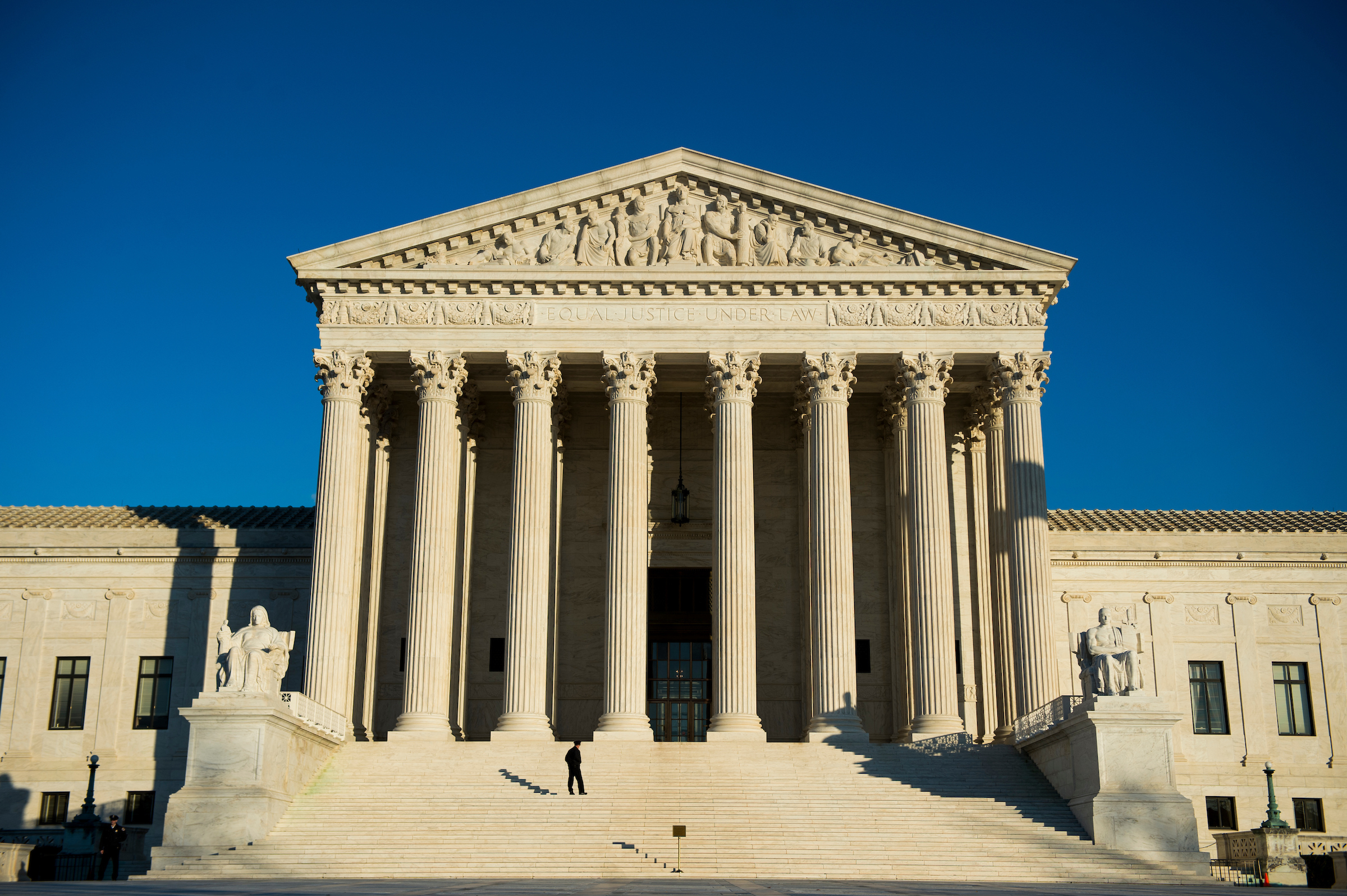Supreme Court Dials Up Privacy Rights on Cellphone Records
Government must get a warrant to access a cellphone user’s location data

The Supreme Court on Friday boosted protections for cellphone records that reveal a user’s location and movements over extended periods of time, in a major privacy decision for the internet age.
The majority, in a 5-4 opinion, required the government in most cases to obtain a warrant to get a cellphone user’s location data from phone providers because it is a search under the Fourth Amendment. The decision highlights modern-day concerns about how much personal information can be gleaned from such data.
The appeal comes from a defendant in a string of Michigan bank robberies, and is one of the more important cases of the term about protections against unlawful searches and seizures.
Federal investigators in the case obtained four months of the defendant’s cell-site location information, or CSLI, under a doctrine from the 1970s that says there is no reasonable expectation of privacy for records held by third parties, such as mobile service providers.
Chief Justice John G. Roberts Jr., writing for the majority, said the location information collected by companies is “an entirely different species of business record.”
Much like GPS tracking of a vehicle, “cell phone data is detailed, encyclopedic and effortlessly compiled,” Roberts wrote. The information comes from a cell phone’s continuous transmission of text messages and routine data connections to cell tower sites.
The court previously recognized that people have a reasonable expectation of privacy in all of their physical movements, and this data raises privacy concerns about “arbitrary government power much more directly than corporate tax or payroll ledgers” typically obtained under that 1970s doctrine, Roberts wrote.
“We decline to grant the state unrestricted access to a wireless carrier’s database of physical location information,” Roberts wrote. “In light of the deeply revealing nature of CSLI, its depth, breadth, and comprehensive reach, and the inescapable and automatic nature of its collection, the fact that the information is gathered by a third party does not make it any less deserving of Fourth Amendment protection.”
The opinion allows law enforcement to get the information without a warrant in an ongoing emergency.
Roberts was joined in the majority by the liberal wing of the court, Justices Ruth Bader Ginsburg, Stephen G. Breyer, Sonia Sotomayor and Elena Kagan.
Justice Anthony M. Kennedy, in a dissent, wrote that the majority is illogical to differentiate the cellphone location records from other business records and undo long-standing legal doctrine on searches. And he said it steps on Congress’ power to authorize federal investigators to collect new forms of information without a warrant.
Kennedy points out that the government can still acquire a record of every credit card purchase and phone call a person makes over months or years without upsetting a legitimate expectation of privacy.
“But, in the Court’s view, the Government crosses a constitutional line when it obtains a court’s approval to issue a subpoena for more than six days of cell-site records in order to determine whether a person was within several hundred city blocks of a crime scene,” Kennedy wrote.
Justices Clarence Thomas and Samuel A. Alito Jr. joined Kennedy’s dissent. Thomas, Alito and Justice Neil Gorsuch also wrote their own dissents in the case.
Alito wrote that Congress and not the Supreme Court should act on this issue, as it did in a 1986 law on electronic communications, because of the complexity of the subject and the need to respond to rapidly changing technology.
And Alito pointed out that the Fourth Amendment restricts what the government can do, but some of the greatest threats to individual privacy are the increasingly vast quantities of data collected by powerful private companies.
The 1986 law, on the other hand, went beyond the protections that the Fourth Amendment provides and can be strengthened by elected representatives because the collection and storage of cell-site records affects nearly every American, Alito wrote.
“If today’s decision encourages the public to think that this Court can protect them from this looming threat to their privacy, the decision will mislead as well as disrupt,” Alito wrote. “And if holding a provision of the Stored Communications Act to be unconstitutional dissuades Congress from further legislation in this field, the goal of protecting privacy will be greatly disserved.”
The American Civil Liberties Union, which argued for the defendant when the case was heard in November, called it a groundbreaking decision that brings the law in line with the realities of modern life.
“The government can no longer claim that the mere act of using technology eliminates the Fourth Amendment’s protections,” ACLU attorney Nathan Freed Wessler said in a statement. “Today’s decision rightly recognizes the need to protect the highly sensitive location data from our cell phones, but it also provides a path forward for safeguarding other sensitive digital information in future cases — from our emails, smart home appliances, and technology that is yet to be invented.”
The case is Timothy Carpenter v. United States.
Watch: Why are the Dreamers Called the Dreamers?





